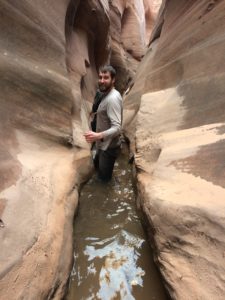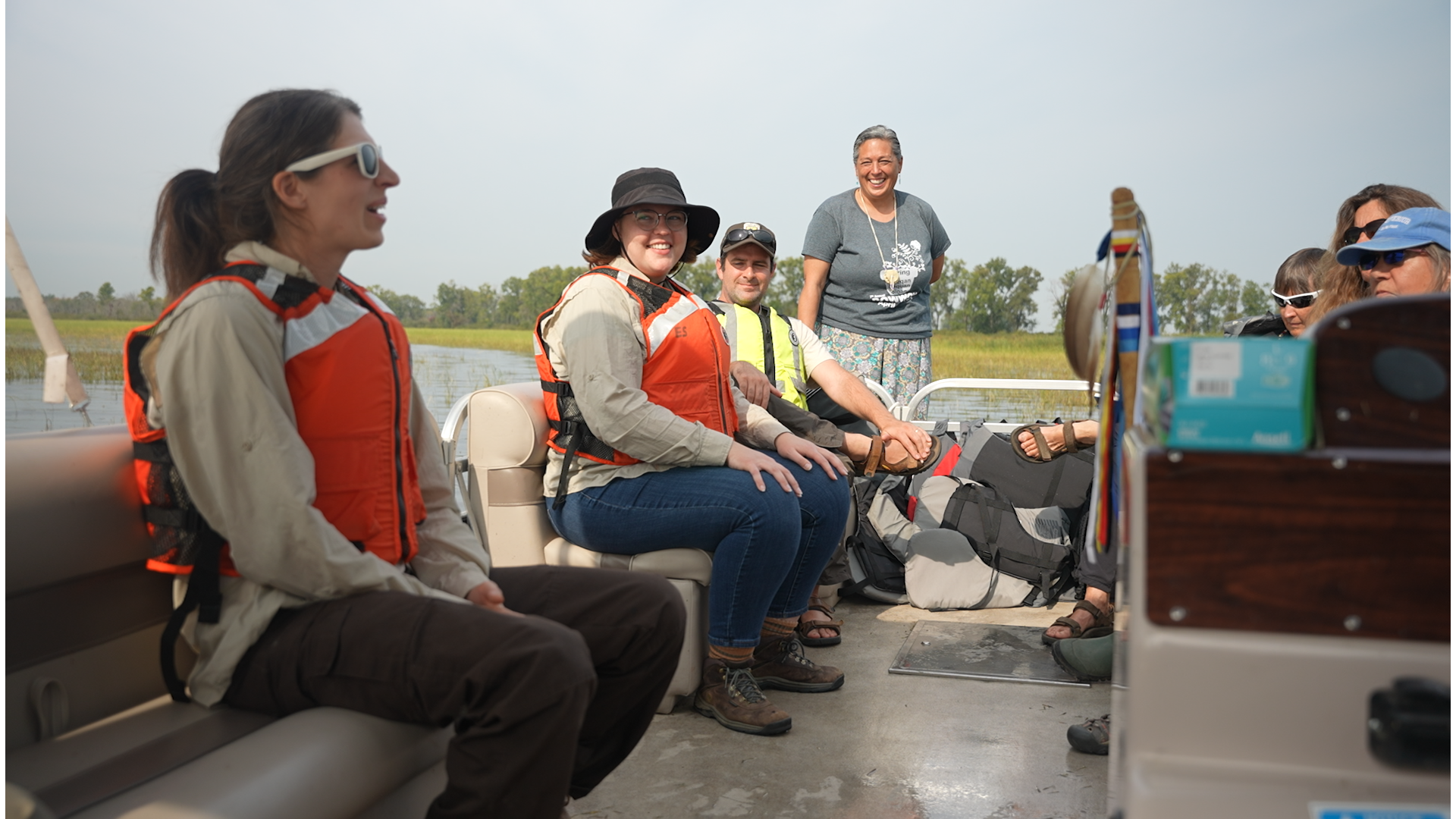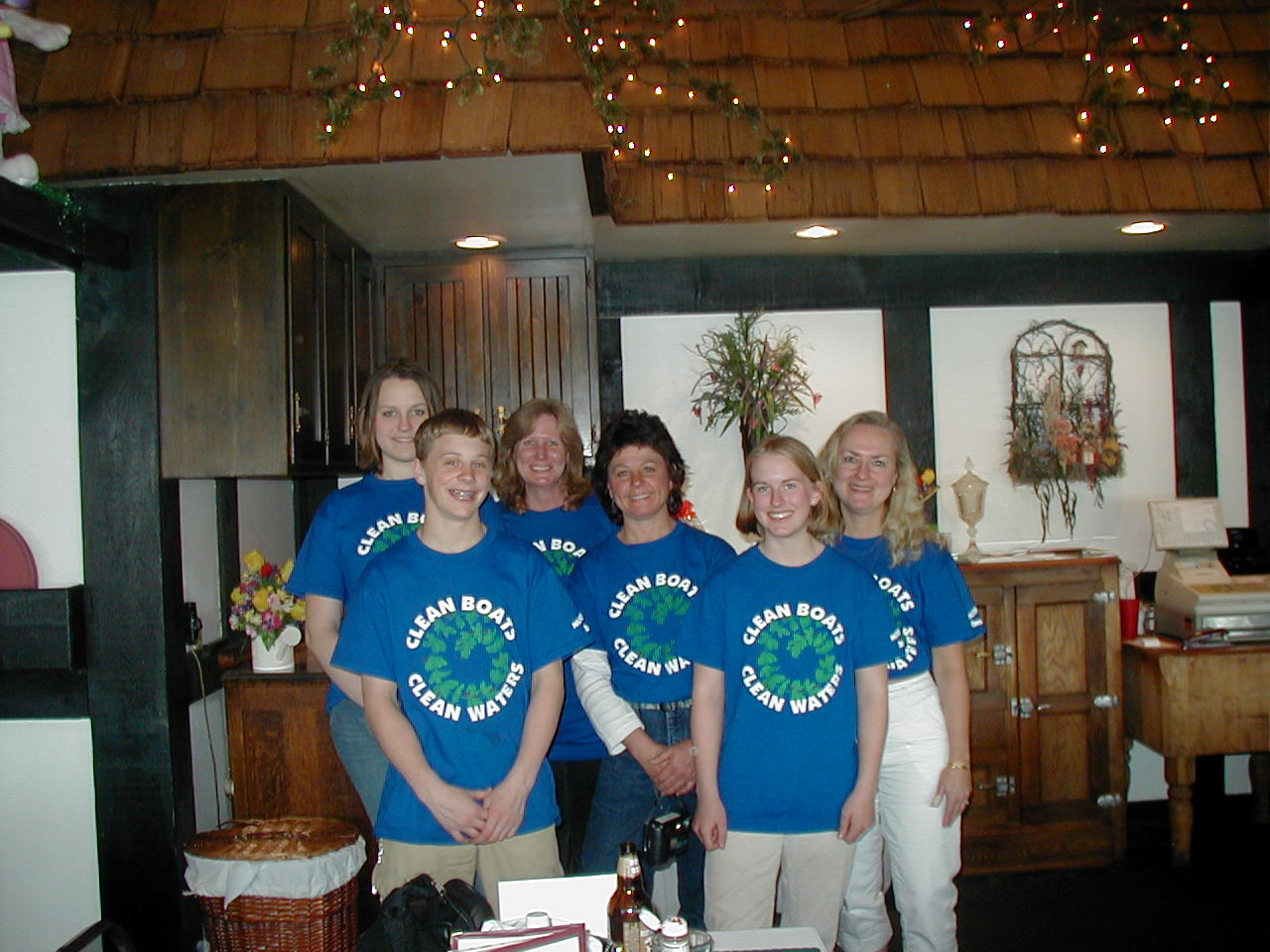Wisconsin Sea Grant has a new team member in the effort to protect our waters from aquatic invasive species. Scott McComb began May 3 as the southeast Wisconsin aquatic invasive species (AIS) outreach specialist.

Scott McComb has joined the staff of Wisconsin Sea Grant. (Submitted photo)
McComb’s position focuses on Kenosha, Racine and Milwaukee counties, where he will coordinate education, monitoring and outreach programs for communities, stakeholders and volunteers to prevent the spread of AIS. His office is located at the Kenosha County Center in Bristol, though he anticipates spending a significant amount of time in the field in the three counties.
The three main programs McComb will focus on are the “Clean Boats, Clean Waters” campaign, a purple loosestrife biocontrol program and a citizen lake monitoring program. When possible, he’ll also have a presence at local and regional events (like Racine’s Salmon-A-Rama in July) to help spread the word about AIS prevention and answer the public’s questions.
McComb is eager to engage with a wide range of people. “Honestly, I feel like everyone under the sun is my stakeholder!” he laughed. He will partner with lake or homeowners’ associations that monitor bodies of water, government entities like parks departments, volunteer groups, conservation corps and individuals with an interest in maintaining healthy ecosystems for future generations.
He’s also keen to work with people of different ages. “I’d really like to engage youth and the diversity of cultures and backgrounds in this region. There are so many great groups and people to connect to,” said McComb.
As the summer recreation season gets underway and people head out for boating, fishing and other outdoor pastimes, McComb stressed the basics of protecting our waters, such as the “Inspect—remove—drain—never move—dispose” motto. People should inspect their boats, kayaks or other watercraft for aquatic plants and animals; remove any that are found; drain water from live wells and other areas; never move water, plants or animals between waterbodies; and dispose of unused bait in the trash.
Additionally, he said, “Just be curious and keep your eyes open with what’s going on in the different lakes that you use. You don’t need to be an expert on aquatic vegetation to see a species start to take over, and there’s a whole bunch of people—including myself and DNR folks—who are here to help you identify something if you think it’s an invasive.”

McComb during a hike in Zebra Canyon, Grand Staircase-Escalante National Monument, Utah. (Submitted photo)
McComb grew up in the Madison area and earned a bachelor’s degree in geography from the University of Wisconsin-Milwaukee. He then spent several years in Utah, where he completed a master’s degree in bioregional planning and worked in planning and conservation.
Said Tim Campbell, Wisconsin Sea Grant’s aquatic invasive species outreach specialist, “Scott has a lot of experience helping communities plan and implement projects that help them improve their communities. I look forward to seeing how that experience helps him build upon existing local partnerships in southeast Wisconsin to improve aquatic invasive species prevention and management.”
A desire to be closer to family brought McComb and his wife back to Wisconsin. In their free time, they enjoy canoeing, kayaking and simply being out in nature.
As McComb settles into his new role, he encourages people seeking AIS information to get in touch. He can be reached at 608-890-0977 or McComb@aqua.wisc.edu.





